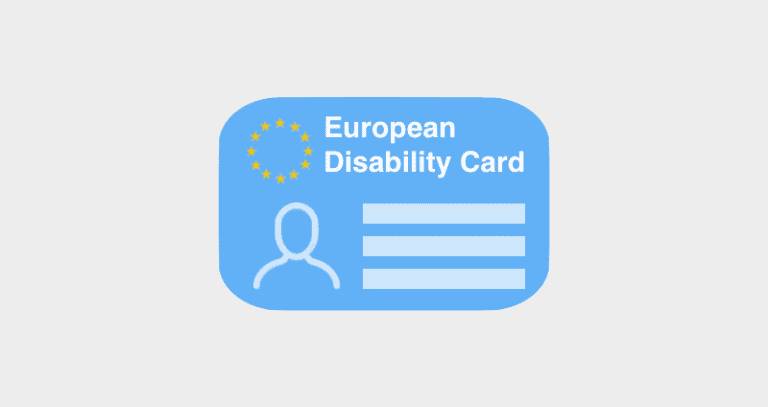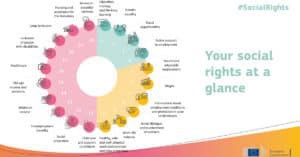On 8th February 2024, following the second trilogue negotiations, the European Parliament and European Council reached a provisional agreement on the Directive establishing an European Disability Card. Now that the provisionally agreed upon text is available, we have done an analysis (see document below) of the most relevant provisions in the Directive that will support the realisation of the right to freedom of movement of deaf people in the EU. Although, the text does not meet all the demands of EUD, it has some positive aspects.
In summary, the positives aspects include:
- The Card will be issued and renewed free of charge.
- Inclusion of transport services in the scope, even if some exceptions will apply, along with culture, leisure, tourism, sports, and training.
- Exceptional provisions for those taking part in EU Mobility Programmes with use of the Card as their access to support will be continued for the duration of the programme.
- Although the text states that the Card will only be usable in a host country for “short term stays” of 3 months, Member States can decide to extend the use of the Card to longer stays.
- Provision that the EU level webpage for the Card must include the information in both international sign and the national sign languages.
Portāls negative aspects include:
- If you wish to move abroad, you not have access to support while undergoing lengthy “disability reassessment” processes. However, the EU Commission commited to further explore remaining gaps related to the free movement of persons with disabilities, such as the portability of disability-related support when moving to another EU country.
- The provision allowing the choice of adding access symbols on the Card during the application process was removed. This is very disappointing as these symbols would have facilitated the communication of deaf people’s disability and corresponding required reasonable accommodations such as national sign language interpretation.
- Removal of the need for awareness raising programmes about the Card to be accessible in the national sign language.
- EU Member States will have 42 months to start providing the Cards, including 30 months to transpose the legislation (that is to create national laws to obey it). This means that the Card will only fully become a reality in 4 years.
Next steps – now that the trilogue negotiations are complete, the EU Parliament will vote on the provisionally agreed upon text, and should they adopt it at first reading, the Council will approve it and the act shall be adopted.












